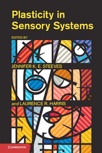Study examines how COVID language relates to feelings of risk in young adults Y-File, York University Daily News
November 9, 2021
Researchers at York’s Faculty of Health in the Department of Psychology found this age group rated their overall risk perception associated with contracting COVID-19 More...
Research investigates brain stimulation treatment for visual disorders Y-File, York University
September 30, 2020
Researchers at York University are the first to investigate whether non-invasive brain stimulation to the visual cortex would be an effective clinical application in More...
Study shows early partial vision loss results in changes to auditory system Y-File, York University
October 8, 2019
People who have lost an eye early in life show changes not only in how the visual system is wired in their brain, but also in the wiring of their More...
The York University Magazine, Fall 2017 “Our plastic brains: How our brain adapts to sensory loss—even of an eye”
2017
NEW FINDINGS BY YORK researchers indicate that people with early vision loss exhibit a larger volume in the auditory parts of the brain, as well as evidence of More...
York Media Relations, York Research Identifies Potential Treatment for Visual Disorders: First Study of its Kind
October 26, 2016
There may be new hope for those who suffer from visual disorders after a stroke or other traumatic event thanks to new research developed by More...
York Research Identifies Potential Treatment for Visual Disorders Y-File, York’s Daily Bulletin
Sept 24, 2016
York University research has shown that the use of long-term, repetitive transcranial magnetic stimulation (TMS) has potential as a therapeutic tool in treating More...
York researchers discover structural reorganization in the brain in cases of sensory deprivation Y-File, York University
November 25, 2015
New findings by a team of researchers at York University indicate that individuals with early vision loss exhibit a larger volume in the auditory parts of the brain, as well as evidence More...
Brain’s plasticity allows adaptation to the loss of one eye early in life Y-File, York’s Daily Bulletin
December 5, 2013
York University researchers have found that the brain is capable of adapting to the loss of an eye within the first four years More...
Plasticity in Sensory Systems is published!
2013

http://www.cambridge.org/knowledge/discountpromotion?code=L2PISS
Stefania Moro interviewed on CBC radio’s Metro Morning:
November 30, 2011
http://www.cbc.ca/metromorning/episodes/2011/11/30/adapting-senses/
CBC radio Spark interview on facial recognition:
October 2, 2011
http://www.cbc.ca/spark/2011/09/spark-157/
CBC radio Quirks and Quarks interview “The Man Who Mistook Every Face” discussing a recent paper in Neuropsychologia:
October 30, 2010
http://www.cbc.ca/quirks/episode/2010/10/30/october-30-2010/
Have we met? Women, gay men know best by Jeffrey Kluger, Time.com
June 24, 2010
There are few men in the world who haven't muttered a quiet word of thanks to the anonymous man who invented the name tag, that "Hello, my name is" accessory that can be such a lifesaver at cocktail More...
York study finds gay men’s bilateral brains better at remembering faces by Melissa Hughes, Y-file, York University
June 23, 2010
Gay men can recall familiar faces faster and more accurately than their heterosexual counterparts because their brains function more like those of women, according to a new study by York University More...
Gay men are good at recognizing faces They use both sides of their brains more than their heterosexual counterparts: York U study Macleans.ca
June 22, 2010
Gay men can recall familiar faces faster and more accurately than their heterosexual counterparts because, like women, they use both sides of their brains, according to a new study by York University More...
